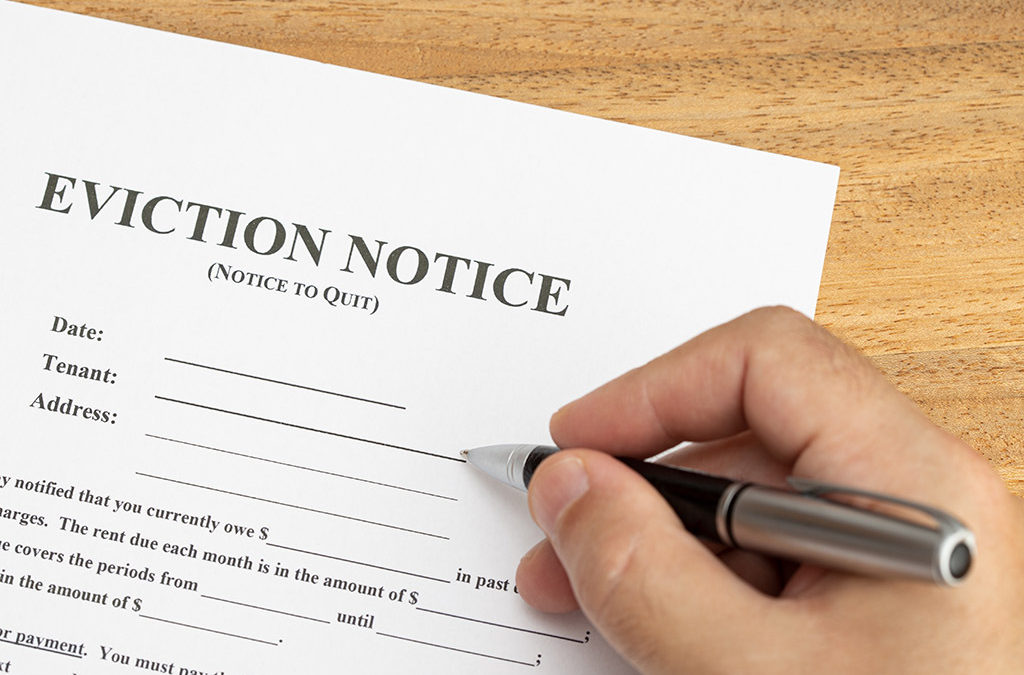
by Rentcore | Jul 5, 2022 | Landlord
Landlords living overseas who own property in other territories are frequently presented with a conundrum – how exactly do they keep tabs on the tenancy of their various properties? After all, they’re far removed, often in different time zones and unable to do things like scheduling inspections, meeting personally with new tenants, etc.
The solution is for these individuals to hire a property management company to do the job for them. These locally-sourced companies provide huge net benefits for overseas landlords who cannot be present to conduct important property management routines.
THE VALUE PROPOSITION
The simple fact is that overseas landlords have more challenges managing their properties due to their physical distance. This level of detachment can actually affect earnings potential, especially if the property depreciates due to damage or other factors related to tenancy.
As a result, many overseas landlords may opt to sell their properties, rather than deal with the inconvenience. In doing so, they lose on actualizing long-term earning potential, particularly if the currency conversion is not in their favor. Offsetting that issue involves hiring a property management company to do the job for them. The property management company acts as liaisons to collect rent, screen tenants, and keep tabs on the health and durability of the property. If something breaks, they’re on hand to bring in professionals to fix it. If tenants are in violation of the contract, property management companies can take the necessary steps to remove them.
Every property is a long-term investment with a lot of earning potential. Selling too early and disposing of these property assets from one’s portfolio is not a wise strategy, particularly if the property investor wants to maintain a steady and healthy revenue stream well into retirement age.
THE RISKS OF GOING SOLO
Some overseas landlords may attempt to take care of things themselves, or trust in their tenants, but that opens up an entirely new set of risks that should be avoided. For instance, the simple process of repairing a property can be daunting. Contractors may overcharge, cut corners, or overlook things that would normally be dealt with by a property owner on the scene.
Similarly, tenants can skip out on rent for months at a time, or may involve by-law inspectors if repairs are not addressed. It’s difficult enough for many landlords to deal with non-paying tenants as it is, let alone trying to manage these issues from overseas.
A property management company knows the ins and outs of tenancy, and how to deal with non-paying or bad tenants. They have access to the right legal channels, and an understanding of how to mitigate the problem before it spirals out of control. Without a property management team at their side, overseas landlords could unwittingly drag a problem out for months, or even years at a time, incurring costs whilst losing huge amounts of revenue.
The pressure may escalate to such a degree that overseas landlords simply decide to cut their losses and sell their properties, but they also may face further loss. If the property has been irrevocably damaged by a bad tenant, overseas landlords could see their property valuation decrease, and less bidders show interest to buy a property that does not show well. Suddenly, a property with a high valuation could take too many knocks due to the issues plaguing it, making it that much harder to achieve a fair asking price.
There are ancillary factors to consider as well, including finding good tenants to take over when other tenants vacate. A remote long distance landlord cannot meet prospective tenants, cannot conduct outgoing and incoming suite inspections, and cannot identify repairs that may need attention before a new tenant moves in.
CONCLUSION
It’s far better for overseas landlords to put their properties in the hands of an established and reputable property management company. The costs are negligible compared to the overall peace of mind they bring to a landlord, whether domestic or foreign. The less a landlord has to do to keep an eye on a property, the more time they have to invest in other things.
If you are an existing or prospective overseas landlord with property to rent in Canada, please contact us at RentCore, and learn how we can take care of all the daily tasks of property management, so you don’t have to.

by Rentcore | Jun 28, 2022 | Landlord
When it comes to renting out a property, tenants are expected to do their fair share of upkeep to maintain cleanliness and overall integrity. Many rental contracts come with these stipulations laid out, and they vary in scope. For instance, some contracts dictate that landlords will bring in third party companies to clear the snow or mow the lawn, but some do not.
Other contracts meet the tenant halfway, requiring them to do minor maintenance around and within the property to make sure it is kept up to code and spec. When it comes to educating tenants about the responsibilities of property maintenance, it’s wise to follow a few key steps.
BE THOROUGH FROM THE START
The key to avoiding any issues with tenants regarding property maintenance is to be clear and concise from the start. This begins with drafting a detailed rental agreement that doesn’t hide anything, and allows tenants to see exactly what they’ll be required to do. From there, the two parties can negotiate (if possible) and reach a consensus.
The last thing any landlord should do is obfuscate these responsibilities, or drop them on the tenant after the agreement has been signed. Doing so can lead to a host of legal headaches and unnecessary conflicts which can be avoided from day one. Tenants should know what is expected of them, and be allowed to ask pertinent questions before they sign on the dotted line.
FOSTER AN OPEN DOOR POLICY
Landlords do best when they open up the lines of communication with tenants. The last thing either party wants is to deal with the other on a consistent basis, but if the two can strike up a healthy working relationship, it will prevent more problems from popping up down the road.
Landlords should leave pertinent contact info with tenants – where they can be reached, if problems arise. Many landlords who do not have time to keep tabs on a property will seek the help of a property management company such as Rentcore. We know how difficult it can be to manage a property, especially if you’re a landlord with multiple properties or a busy work schedule. Regardless of who is in charge, tenants should know who to contact when they’re in a bind, or need answers to pressing questions regarding property maintenance.
PERFORM AN INSPECTION
Even after the rental agreement has been signed, landlords should refrain from sitting back and thinking that everything is going according to plan. Inspections are a way for landlords to make sure that everything is on the up and up. They might be able to spot needed repairs that inexperienced tenants may not notice.
Second, it gives the landlord the opportunity to see how the property is being treated. Tenant behavior may cause issues that can erode the quality and health of the property, such as putting mattresses on the floor without a bed frame. Other behavioral patterns can lead to problems with plumbing, insect infestations, mildew and mold growth, etc.
The caveat is that landlords must adhere to a strict set of tenancy rules determined by their respective locale. They cannot enter the property whenever they want, and must adhere to guidelines, such as providing 24 hour notice before showing up. Even then, there are stipulations landlords must adhere to, but it’s still possible to schedule inspections and make sure things are running smoothly.
Bear in mind that it may take only a single inspection to determine that the tenant is trustworthy, and will respect and care for the property. However, it’s still good to conduct the occasional inspection to make sure they’re sticking with it. From there, landlords can communicate with tenants and remind them of their responsibilities when it comes to property maintenance.
LEAD BY EXAMPLE
Some tenants, especially young ones, are inexperienced when it comes to property maintenance. Don’t hold that against them. Rather, look at it from the perspective of a teacher/student relationship, and use it as a means to educate them about how to perform said maintenance.
Most of the time, the maintenance in question is extremely straightforward, and merely requires time. Mowing the lawn is not rocket science, and once a tenant is shown how easy it is, they’ll be ready to tackle the task without your help the next time ‘round. The same principle applies across the board – lead by example, and your tenants will become self-reliant and proficient. Not only will this boost their confidence, but it will gain your trust.
CONSIDER THE TENANT’S NEEDS
Landlords should remember that not all tenants have the same skills, and some simply cannot perform certain tasks. For instance, those with heart problems or other physical ailments may not be healthy enough to shovel snow after a major storm. It then becomes an issue of compromise, and finding a workable solution.
Don’t reject a potentially great tenant just because they might have trouble with certain aspects of property maintenance. There are always workarounds, and it’s better to have a AAA tenant incapable of performing certain tasks, rather than a problem tenant who refuses to perform any task whatsoever.
CONCLUSION
Great tenants will abide by the wishes of the landlord when it comes to property maintenance, provided it’s agreed on beforehand, and both parties know what is expected. The more open the lines of communication are, the happier both landlord and tenant will be.
For more information on how Rentcore can help handle the intricacies of a rental agreement, while managing your property as a liaison between you and your tenants, please contact us!

by Rentcore | Jun 2, 2022 | Landlord
So, you have property to rent out, and you’re excited about making some money. Before you hand over the keys to a new tenant, are you sure you’ve covered all your bases? It’s important to make sure that every detail has been checked, to avoid possible legal repercussions and stressful headaches.
Every prospective Landlord should have a checklist at the ready, to make sure nothing has been missed. When the time comes to rent out your space, you’ll have peace of mind knowing that you haven’t left anything to chance. That can help you avoid multiple pitfalls as the renting process moves forward.
SAFETY INSPECTIONS
It’s your responsibility to make sure that your tenants are safe and sound, and that means safe-proofing your property. This is a mixture of common sense, and adherence to all applicable regional and provincial laws and bylaws. It covers everything from basics like having a smoke alarm on every floor, to subtle things like stability of staircases, ventilation and electrical.
In fact, some of these safety-related criteria should best be left to a professional, in order to guarantee you aren’t liable for any injuries or damages. It can be hard to spot things like mold, which can be hazardous to your tenants’ health, but what about asbestos or lead in older housing units? If you’re the slightest bit unsure, it’s time to bring in someone who can give your property a professional examination.
PERFORM A QUALITY/DAMAGE CHECK
This is for your benefit, as well as your tenant. By performing quality and damage checks on your property, you can avoid a “he said, she said” scenario where both parties point the finger at one another over perceived damages. If your property is in need of repairs or fixings, make sure to take care of those before the tenant moves in.
It’s also important to walk through the property with your tenant and perform this inspection, so both are on the same page. It’s advisable to take video of your property before the tenant moves in, provided it has been timestamped. When both parties are aware of the status of a property, there’s no room for any funny business on either side.
THE LEASE AGREEMENT
Before tenants move in, they should sign a lease agreement which acts as a binding contract between both parties. Make sure all details are filled out, including all applicable terms and conditions, the rent amount per month, details regarding security deposits and fees, forbidden practices, maintenance agreements, damage accountability, tenancy limitations (ie. sub-leasing), the ability to keep pets, and right of entry.
The more details on paper, the better. Both parties will receive a copy so that there’s no confusion, but in case of a dispute, you’ll have all your necessary paperwork with the tenant’s signature attached. This can go a long way to nullifying any disputes before they erupt into something worse.
FIRST & LAST MONTH’S RENT
It’s important for Landlords to secure first and last month rent before tenants move in. Don’t neglect the security deposit, either (unless last month’s rent is the deposit, which is rare). While the practice of first and last month rent is somewhat flexible, it’s good practice to get both, just in case. Certain localities allow for exceptions to this rule, so be sure to check and make sure you aren’t violating any laws.
One of the biggest reasons for securing last month’s rent is to prevent tenants from taking off before their move-out date, which can leave Landlords scrambling to find a replacement tenant. It’s peace of mind for both sides, as tenants don’t have to pay the final month’s worth of rent while they secure rental funds for a new place.
CHANGING THE LOCKS
Renting to a new tenant may involve a changing of all the locks present on your property, which is a legal requirement. There’s no guarantee that previous tenants hadn’t managed to make backup keys, which can allow them to gain access to the property after a new tenant has moved in. This is a severe safety and liability issue that must be addressed. Make sure that new tenants get a brand new pair of keys that have never been used by anyone else before.
Of course, there is an exception to this rule – if your property has never been rented out before. With no previous tenant history to speak of, there’s no risk of strangers entering the property and committing mischief or crimes.
WORK WITH YOUR TENANTS
Not everything about the property rental world revolves around contracts and fine details. It’s wise to build a healthy and constructive relationship with your tenants, and hear their side of things. If you had a no-pets clause, yet your stellar tenant with excellent references claims to have a well-behaved cat, you might wish to relax your stance on a case-by-case basis.
Similarly, tenants may wish to actually improve on your property by asking to paint the walls, or perform some decorative renovations. Naturally, these are subjective, and you should be Ok with their ideas, but it may turn out to be mutually beneficial. The more you communicate and work with your tenants, the happier both sides will be. Make sure no lines are being crossed, and you may have solid, reliable and trustworthy tenants for years to come.
CONCLUSIONWhile it’s tempting to go solo when renting out your property, the truth is that mistakes can still happen. Having a good Landlord’s checklist is paramount when it comes to preventing issues, but it’s still no substitute for hiring a property management company that knows the ins and outs of the business, and how to navigate troublesome waters. If you’d rather escape the hassle and stress of renting out your property, be sure to contact us at RentCore so that we can assist. Even with our talented team involved in your property management, it’s still a great idea to get to know your tenants, and establish a healthy relationship with them. That way, everyone is happy, healthy, and enjoying your property the way it was meant to be enjoyed.

by Rentcore | May 26, 2022 | Tenants
In a perfect world, every human being would be respectful of those around them, including their property. In the world of real estate, that’s not always the case. An experienced property management company knows how to analyze a list of potential tenants, and weed out the bad ones from the group. However, Landlords who opt to rent out their properties by themselves could be in for a bumpy ride.
Those who have found themselves saddled with bad tenants know how frustrating it can be, but all hope is not lost. There are steps Landlords and property owners can take when it comes to dealing with terrible tenants, which will hopefully prevent further escalation.
STAY ON TARGET
Landlords who are forced to deal with terrible tenants should keep their focus solely on evicting them out as fast as possible. These bad apples will try to obfuscate, make excuses, and play for sympathy in an attempt to maintain their position, which is why it’s important for Landlords to remain steadfast.
Of course, there may be times when tenants are simply going through a bad time, and need a little understanding, but if the problem becomes chronic, there’s no recourse but to get them out. There’s no sense dealing with the headaches and stresses of a terrible tenant, especially when there are so many wonderful ones waiting in the wings who will respect your property, pay on time, and give you peace of mind.
KEEP A PAPER TRAIL
One of the biggest mistakes Landlords and property owners make is neglecting to document a bad tenant’s history. Without a paper trail, it’s extremely difficult to build a case against them, especially if they have a history of non-payment, bad behavior and other offenses.
Be as thorough as possible, including dates, times and notes about each encounter or problem. The more information you have, the more legit your case will become. Maintaining a log of emails and texts sent by tenants, which can provide context about their behavior is equally important. If possible, take pictures of property damage, or other violations of the contract.
SEND AN EVICTION NOTICE
When dealing with a terrible tenant, it’s paramount that Landlords follow the guidelines in the Landlord and Tenant Act. Doing so will give the correct impression that the Landlord in question has done everything possible to rectify the situation, to no avail. If tenants are breaking the rules of the contract, or are behind on rent, it’s time to draft an eviction notice.
The purpose of the eviction notice is twofold. First, it shows that you aren’t taking matters into your own hands, and you’re obeying the rules. Secondly, it will no doubt factor into the next phase of the process, which is getting an order from the Landlord and Tenant Board to officially remove the tenant from the premises. When sending the eviction notice, be sure to use a reputable courier with a tracking number, to prevent tenants from claiming that they never received it.
The best case scenario is that late-paying tenants learn to pay on time to prevent any future notices from being filed, and destructive, belligerent tenants leave voluntarily of their own accord. The worst case involves taking further action via the Landlord and Tenant Board.
UNDERSTANDING THE LAW
Eviction laws vary by province, but the general consensus is that it can be very hard to evict a tenant as a rule. Therefore, following the aforementioned proper procedures can expedite the process, while making the experience that much smoother. The Landlord and Tenant Board must provide an order so that tenant belongings can be removed, the locks changed, and the eviction process can be completed.
Once the meeting with the LTB is complete, the tenant in question will no doubt be given a finite amount of time to get their belongings out, so that you can reclaim your property. Following the above steps guarantees that your case looks solid and bulletproof, which is extremely important. Even one small missing detail can threaten to derail the entire process, forcing you to start over.
HIRE A PROPERTY MANAGEMENT COMPANY
Needless to say, the risks of renting out your property are noteworthy, which is why it’s important to always hire a property management company to oversee the details. At RentCore, we are experts at detecting red flag tenants before they make it through the screening process. In the unlikely event that a bad tenant manages to slip past our net, we have the experience and resources necessary to effectively remove them with little effort.
All things considered, most prospective tenants are good folks who won’t give property owners any trouble, and simply want a nice place to live. The best tenants are the ones that Landlords dream of, and give hearty recommendations down the road.
RentCore is ready to assist you with renting out your property to the absolute best tenants in your area, so make sure to contact us directly so we can get started!

by Rentcore | May 19, 2022 | Tenants
Many first-time tenants think renting a property means everything is taken care of. While there are certain advantages to being a tenant, there are things they need to be aware of when it comes to maintenance, upkeep and expectations.
Renting out a property means respecting the Landlord who owns or maintains it, just as you would your own home. Naturally, you aren’t responsible for every single part of the property, but there are certain expectations Landlords place on their tenants, which are easy to follow.
ROUTINE MAINTENANCE & CLEANLINESS
Needless to say, renting a property does not give a tenant carte blanche to behave badly, or make a mess. It’s the responsibility of the tenant to take the garbage out, clean appliances like refrigerators and stoves, and maintain overall cleanliness of the property.
While some tenants may think it’s their “right” to live in squalor-like conditions, the truth is a bit more complex. Mold growth in bathrooms can be a health hazard, as can the buildup of rust and grime. Excess dirt can damage appliances, leading to unnecessarily and costly repairs or replacement purchases. And of course, leaving garbage strewn about invites vermin, including cockroach or fruit fly infestations, maggots, etc. This should be unacceptable at all times, regardless of whether the home is yours, or not.
PREVENTING DAMAGE
Tenants should exercise the utmost care when renting out a property. Property insurance was never designed to cover reckless behavior that leads to excess damage. Therefore, it’s important that tenants exercise responsibility and care when moving furniture, inviting guests over, or handling various appliances. Similarly, Landlords who allow pets on the premises expect tenants to take responsibility for any damages that might be incurred.
It’s important for tenants to be aware of other potential forms of damage, such as tampering with smoke or carbon monoxide detectors, blocking emergency exits, or misusing rooms for a purpose not originally intended. And finally, tenants should always get permission from the Landlord before proceeding with painting the walls, or other renovations. They may look nice to you, but the Landlord may consider the property to be irrevocably damaged, and hold you responsible.
REPORTING ISSUES PROMPTLY
Normal wear and tear is standard fare with any property, but tenants can exercise a bit more caution by performing an inspection, prior to moving in. Make sure to identify any damages or problem areas of a property beforehand, so they can be dealt with accordingly. Oftentimes, Landlords will agree to fix these issues before you move in, which can lead to a smoother transaction.
However, it’s possible that Landlords may miss these areas completely, and hold the tenant responsible for damages at a later date. This misunderstanding can quickly blossom into a colossal (and costly) headache, so tenants would be wise to protect themselves. Human beings are fallible, and it’s important to talk about any potential issues before the tenant moves in, at which point they may become harder to deal with.
Once established, tenants should keep a close eye on the property, and perform the occasional routine inspection to make sure everything is Okay. It’s easy to miss things like water leakage from bathtubs, faucets or broken air conditioners, as well as exterior damage. Keep a checklist handy, and perform inspections once every month or two, just to be sure everything’s in tip-top shape. The longer a problem is left to sit, the greater the financial damage incurred, and Landlords may hold you responsible. When in doubt, always think of the property as your own, and give it the same care and attention. After all, it only takes a few minutes to give the property a once-over.
LANDSCAPING AND MAINTENANCE
Depending on your rental type and contract, Landlords may either hire third-party lawn mowers and snow removal companies, or they may dictate that you bear the responsibility. This is usually established early on, but it’s best to get it in writing before moving in. Some tenants cannot perform these tasks due to health issues, though that won’t hold up if there’s a conflict.
Most tenants have no problem cutting grass or shoveling snow from walkways and paths, but it’s best to know this moving forward. Sometimes, Landlords will hire contractors for larger duties, while still expecting tenants to clip the occasional hedge, or shovel and salt the front porch and walkway during wintertime. Remember, Landlords and property managers may be liable for injuries sustained by visitors, delivery people and even local authorities, so it’s important to abide by their wishes.
CONCLUSION
Common sense is a huge part of being a tenant, but there’s something to be said for courtesy and consideration, as well. Triple-A tenants know how beneficial it is to respect another’s property, maintain it, and give the Landlord peace of mind. This can lead to glowing reviews and reference letters down the road, as well as extra perks that can be negotiated with future property owners.
Landlords tend to be wary of bad tenants, and they’ll do everything they can to prevent one from renting their property. Behaving like a dream tenant creates a much better and more enjoyable dynamic between both parties, while at the same time preventing any unfortunate legal or financial burdens. When in doubt, communicate openly with your Landlord to properly lay out the ground rules, or reach an amicable compromise. Many Landlords are more flexible than you might think, provided they trust their tenants with the maintenance and care of their property.





